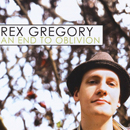
In the liner notes to multi-instrumentalist composer Rex Gregory’s debut album, An End to Oblivion, he asks, “Can we take the steps to declaring an End to Oblivion? Is it still possible to hope?” Ultimately, it is Gregory’s hope that we as individuals and as a society arrive at “an affirmation of life, one informed by the trials of the process itself.” Musically, he describes his work as “an experiment in liberating dissonances while retaining the central movement and sensitivity of tonal constructs.” What’s compelling about Gregory’s endeavor—even more so than his far-reaching ambition and idealism—is his capability as a composer to conduct such a construct within the context of modern jazz without curtailing his ensemble’s capacity for extemporization.
In its entirety, An End to Oblivion takes the form of an overture, a series of suites with discernible movements and themes that are drawn together by an extra-musical concept. What makes this album jazz is that within these themes Gregory allows his musicians, through their interactions, to explore and give shape to the overarching movement. To achieve this feat, Gregory enlists an amalgam of seven of New Orleans’ finest young jazz musicians while he (principally an alto saxophonist) plays no fewer than six instruments—primarily winds—over the course of the album.
An End to Oblivion’s adroit arrangements are unquestionably its defining characteristic. A master of timbre and contrast, Gregory’s astute instrumentation elicits a range of emotions from his often musically and thematically challenging compositions. His strength is in melody and counter-melody and the layering of the two, so that as one motif establishes itself, another mirrors it and almost seamlessly, in a subtle transition, supplants it. “Sky Render” begins with a curious piano (Austin Johnson) and vibraphone (James Westfall) figure that is swept up by an ominous bass clarinet (Gregory) only to be momentarily saved by a silvery trumpet (Gordon Au) as it descends into a free jazz deluge. “Vista” opens with the tranquil lulling of vocalist Johnaye Kendrick and dreamy keys of Brian Coogan, which Gregory shadows on the bass clarinet as the tune ascends into a vigorous saxophone serenade that drifts into a shimmering trumpet swing.
As a player, Gregory shines on the boisterous “Speed Train,” first propelling it with his zestful saxophone and later closing the track with an inquisitive clarinet/bass clarinet conversation. But his presence as a soloist is felt most on the colorful post-bop flourishes of “Natal Song.” Though not the easiest of listens, Gregory delivers a thought-provoking work of art and provocative musical experience with An End to Oblivion.




